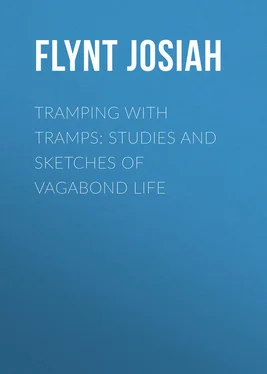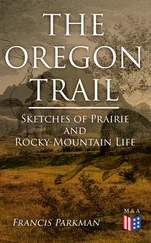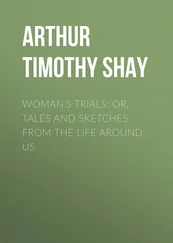Josiah Flynt - Tramping with Tramps - Studies and Sketches of Vagabond Life
Здесь есть возможность читать онлайн «Josiah Flynt - Tramping with Tramps - Studies and Sketches of Vagabond Life» — ознакомительный отрывок электронной книги совершенно бесплатно, а после прочтения отрывка купить полную версию. В некоторых случаях можно слушать аудио, скачать через торрент в формате fb2 и присутствует краткое содержание. Жанр: foreign_antique, foreign_prose, на английском языке. Описание произведения, (предисловие) а так же отзывы посетителей доступны на портале библиотеки ЛибКат.
- Название:Tramping with Tramps: Studies and Sketches of Vagabond Life
- Автор:
- Жанр:
- Год:неизвестен
- ISBN:нет данных
- Рейтинг книги:3 / 5. Голосов: 1
-
Избранное:Добавить в избранное
- Отзывы:
-
Ваша оценка:
- 60
- 1
- 2
- 3
- 4
- 5
Tramping with Tramps: Studies and Sketches of Vagabond Life: краткое содержание, описание и аннотация
Предлагаем к чтению аннотацию, описание, краткое содержание или предисловие (зависит от того, что написал сам автор книги «Tramping with Tramps: Studies and Sketches of Vagabond Life»). Если вы не нашли необходимую информацию о книге — напишите в комментариях, мы постараемся отыскать её.
Tramping with Tramps: Studies and Sketches of Vagabond Life — читать онлайн ознакомительный отрывок
Ниже представлен текст книги, разбитый по страницам. Система сохранения места последней прочитанной страницы, позволяет с удобством читать онлайн бесплатно книгу «Tramping with Tramps: Studies and Sketches of Vagabond Life», без необходимости каждый раз заново искать на чём Вы остановились. Поставьте закладку, и сможете в любой момент перейти на страницу, на которой закончили чтение.
Интервал:
Закладка:
There is one thing more. Reformatories, planned, officered, and conducted according to the principles of scientific philanthropy, should be stationed, not at the end of the road, but at the junction of all by-paths that leads into it.
III
CLUB LIFE AMONG OUTCASTS
I
One of the first noticeable features of low life is its gregariousness. To be alone, except in a few cases where a certain morbidity and peculiar fondness for isolation prevail, is almost the worst punishment that can befall the outcast. There is a variety of causes for this, but I think the main one is the desire to feel that although he is forbidden the privileges and rights of a polite society, he can nevertheless identify himself with just as definite and exclusive a community as the one he has been turned out of.
His specialty in crime and rowdyism determines the particular form and direction of his social life. If he is a tramp he wants to know his partners, and the same instinct prevails in all other fields of outlawry. In time, and as he comes to see that his world is a large one, – so large, in fact, that he can never understand it all, – he chooses as he can those particular "pals" with whom he can get on the easiest. Out of this choice there develops what I call the outcast's club. He himself calls it a gang, and his club-house a "hang-out." It is of such clubs that I want to write in this chapter. I do not pretend to know all of them. Far from it! And some of those that I know are too vile for description; but the various kinds that I can describe, I have chosen those which are the most representative.
II
Low life as I know it in America is composed of three distinct classes, and they are called, in outcasts' slang, the "Kids," the "Natives," and the "Old Bucks." The Kids, as their name suggests, are boys and girls, the Natives are the middle-aged outcasts, and the Old Bucks are the superannuated. Each of these classes has clubs corresponding in character and purpose to the age of the members.
The clubs of the Kids are composed mainly of mischievous children and instinctively criminal children. As a rule, they are organized by boys alone, but I have known girls also to take part in their proceedings. The lads are usually between ten and fifteen years old. Sometimes they live at home with their parents, if they have any, and sometimes in lodging-houses. They get their living, such as it is, by rag-picking, selling newspapers, blacking boots, and doing odd errands fitted to their strength. None of them, not even the criminally inclined, are able to steal enough to support themselves.
To illustrate, I shall take two clubs which I knew, one in Chicago, and one in Cincinnati. The Chicago club belonged exclusively to a set of lads on the North Side who called themselves the "Wildcats." The most of them were homeless little fellows who lived in that district as newsboys and boot-blacks. They numbered about twenty, and although they had no officially elected leader, a little fellow called Fraxy was nevertheless a recognized "president," and was supposed to know more about the city and certain tricks than the rest, and I think it was he who started the club. He was an attractive lad, capable of exercising considerable influence over his companions, and I can easily understand how he persuaded them to form the club. For personality counts for as much in low life as it does in "high life," and little Fraxy had a remarkably magnetic one. He drew boys to him wherever he went, and before going to Chicago had organized a similar club in Toledo, Ohio.
The club-house of the Wildcats was a little cave which they had dug in a cabbage-field on the outskirts of the city. Here they gathered nearly every night in the week to smoke cigarettes, read dime novels or hear them read, tell tales, crack jokes, and plan their mischievous raids on the neighboring districts. The cave contained a brickwork stove, some benches, some old pots and cans, one or two obscene pictures, and an old shoe-box, in which were stored from time to time various things to eat.
The youngest boy was ten and the oldest fourteen, and as I remember them they were not especially bad boys. I have often sat with them and listened to their stories and jokes, and although they could swear, and a few could drink like drunkards, the most of them had hearts still kind. But they were intensely mischievous. The more nuisances they could commit the happier they were; and the odd part of it all was that their misdemeanors never brought them the slightest profit, and were remarkable for nothing but their wantonness. I remember particularly one night when they stoned an old church simply because Fraxy had suggested it as sport. They left their cave about nine o'clock and went to a stone-pile near at hand, where they filled their pockets full of rocks. Then they started off pell-mell for the church, the windows of which they "peppered 'n' salted" till they looked like "'skeeter-nettin's," as Fraxy said. The moment they had finished they scampered into town and brought up at various lodging-houses.
They never thieved or begged while I knew them, and not one of them had what could be called a criminal habit. They were simply full of boyishness, and having no homes, no parents, no friends, no refined instincts, it is no wonder that they worked off their animal spirits in pranks of this sort. Sometimes they used to take their girl friends out to the cave, too, and enlist them for a while in the same mischievous work that I have described; but they always treated them kindly, and spoke of them as their "dear little kidsy-widsies." The girls helped to make the cave more homelike, and the lads appreciated every decoration and knickknack given them.
Every city has clubs like this. They are a natural consequence of slum life, and to better them it is first necessary to better the slums themselves. Sunday-school lessons will not accomplish this; reading-rooms will not accomplish it; gymnasiums will not accomplish it; and nothing that I know of will accomplish it except personal contact with some man or boy who is willing to live among them and show them, as he alone can, a better life. There are many young men in the world who have remarkable ability, I believe, for just such work, if they would only go into it. By this I do not necessarily mean joining some organization or "settlement"; I mean that the would-be helper shall live his own individual life among these people, learn to understand their whims and passions, and try to be of use to them as a personal friend. If he is especially adapted to dealing with boys, he has only to take up his residence in any slum in any city, and he will find plenty to do. But whatever he does, he must not let them think that he is among them as a reformer.
III
The club in Cincinnati was of a different kind. It is true that it consisted of young boys, and that some of them were boot-blacks and newsboys, but in other respects they were different. Their club name was the "Sneakers," and their hang-out was an old deserted house-boat, which lay stranded on the river-bank about a mile or so out of town. Some of them had homes, but the majority lived in lodging-houses or on the boat. When I first knew them they had been organized about three months, and a few of them had already been caught and sent to the reform school. Their business was stealing, pure and simple. Old metals were the things they looked for chiefly, because they were the handiest to get at. They had had no training in picking pockets or "sly work" of any particular sort, but they did know some untenanted houses, and these they entered and cut away the lead pipes to sell to dealers in such wares. Sometimes they also broke into engine-houses, and, if possible, unscrewed the brass-work on the engines, and I have even known them to take the wheels off wagons to get the tires. Their boat was their storehouse until the excitement over the theft had subsided, and then they persuaded some tramp or town "tough" to dispose of their goods. They never made very much profit, but enough to keep up interest in further crimes.
Читать дальшеИнтервал:
Закладка:
Похожие книги на «Tramping with Tramps: Studies and Sketches of Vagabond Life»
Представляем Вашему вниманию похожие книги на «Tramping with Tramps: Studies and Sketches of Vagabond Life» списком для выбора. Мы отобрали схожую по названию и смыслу литературу в надежде предоставить читателям больше вариантов отыскать новые, интересные, ещё непрочитанные произведения.
Обсуждение, отзывы о книге «Tramping with Tramps: Studies and Sketches of Vagabond Life» и просто собственные мнения читателей. Оставьте ваши комментарии, напишите, что Вы думаете о произведении, его смысле или главных героях. Укажите что конкретно понравилось, а что нет, и почему Вы так считаете.












